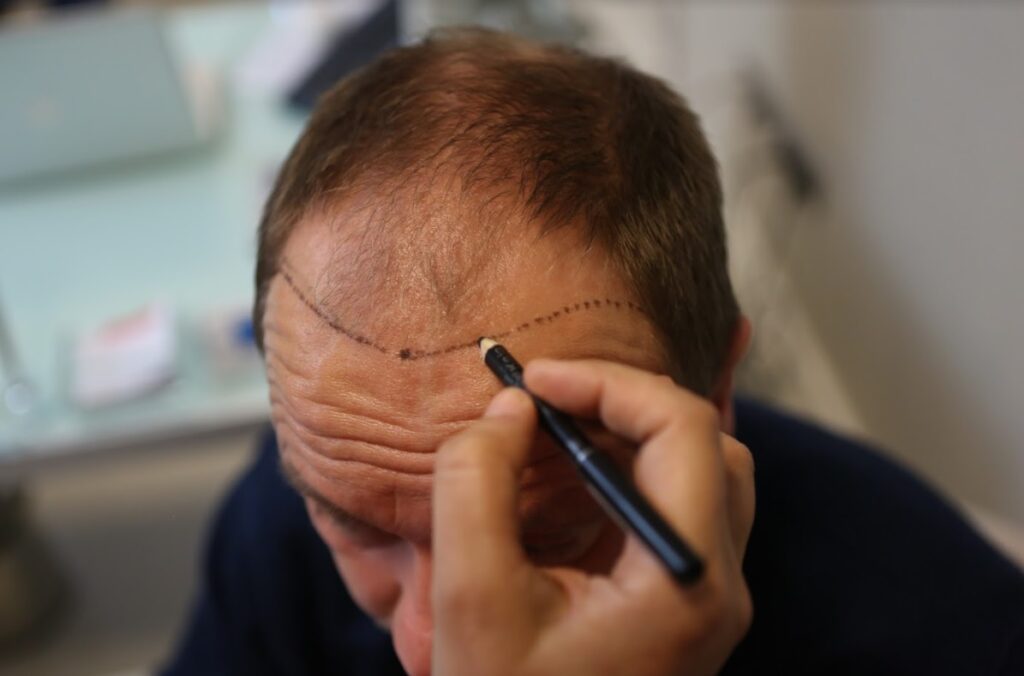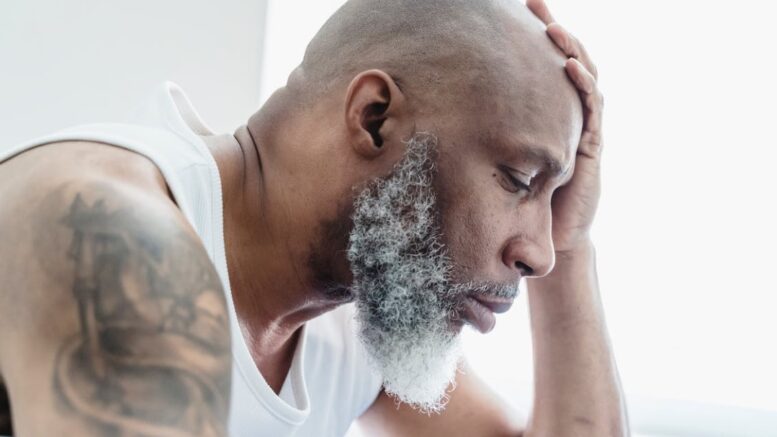Approximately 6.5 million men in the UK experience male pattern hair loss, which is primarily down to genetics. It typically follows a pattern of hair thinning on the crown and a receding hairline.
Whether you or your partner is affected by hair loss, it can be a tough time. Noticing hair loss or being generally unhappy with the appearance of your hair can have a negative impact on your confidence and the state of your mental health. Whether you’re trying to come to terms with it or are newly looking for information about hair loss, there’s a minefield of information out there.
Dr. Knut Moe is the Medical Director of Sons, a men’s health brand. He’s also a practising GP. He has noticed that men between the ages of 18-40 are particularly slow to visit doctors to express health concerns and get regular checkups. Dr. Moe has also seen an increasing number of men grow concerned about the condition of their hair while failing to open up about their issues.
In spite of the stigma that surrounds hair loss, the hair loss market is on the rise all around the world. In fact, it’s expected to go from $1.6 billion in 2017 to almost $2 billion in 2022. As such, millions of men and women are trying to tackle hair-related issues. Shampoos, tablets, and transplants can all contribute to hair growth and provide a thicker, healthier-looking head of hair. With that in mind, Dr. Knut has shared his top five tips to try out if you’re hoping to see improvements in the health of your hair.
Improve your diet
Watching what you eat is so important for all aspects of your health and well-being, but it’s known that specific foods can also boost hair growth. Eggs are an excellent protein and also contain biotin, which promotes hair growth. Strawberries, blueberries, blackcurrants, and other foods that are high in Vitamin C boost collagen production, which serves to improve the flow of blood to your hair follicles. Other potentially beneficial foods for your hair include spinach, fatty fish, sweet potatoes, nuts, and seeds.
Exercise and rest routinely
Regular exercise is just as important as diet, as is ensuring that you get sufficient sleep every night. Exercise improves blood flow and circulation, ensuring your body’s nutrients reach the hair follicles. That being said, too much exercise has been shown to increase testosterone, which can increase DHT – the growth hormone responsible for hair loss.
As such, it’s important to strike a balance. Sleep and melatonin are crucial for the process of synthesis in your hair, so improving your sleep quality also makes a big difference. A knock-on benefit is that improved sleep, diet, and exercise can all boost your mental health and reduce your stress levels. As hair loss can be exacerbated by stress, reducing stress levels can be good for your hair.

Wash your hair
People sometimes mistakenly think that washing your hair can cause it to fall out. If you notice that some of your hair falls out after washing, it’s likely that you are just dislodging hairs that were ready to come out. Running your hands through your hair and combing it can also have the same effect. You should consider switching to a shampoo that improves the quality of your hair – those containing the likes of argan oil, iron, Vitamin B3/Niacin, amla oil, sage oil, rosemary, and saw palmetto can all benefit your hair.
Saw palmetto is a natural, plant-based ingredient that has a range of health benefits. As well as boosting your hair, some research has found that saw palmetto might protect the tissues in the prostate from cancer, reduce inflammation, boost testosterone, and may even improve your sex drive.
Build a good relationship with your barber
We’re only ever one bad haircut away from turning our hair into a disaster. So, it makes sense to develop a solid relationship with a barber that you trust. You can work with your barber to get the most out of your hairstyle, which involves maximising the hair that you currently have. It’s undoubtedly worth investing that little bit more in a talented barber who knows what they’re doing than trying to save money by going to a low-end barber.
Ask for advice early
Maintaining the hair that you already have is much easier than replacing the hair that you have already lost. Therefore, developing an effective haircare routine is a vital first step when caring for your hair.
If you decide that you want to do something about your hair loss, have a chat with a professional to learn about your options. Presently, there are two medications that are proven to treat hair loss – Minoxidil (daily scalp application) and Finasteride (oral tablet). For 90% of men, these medications are effective.
Asking for and listening to sound medical advice is crucial if you have any concerns about your hair, and it will help you set a treatment plan in motion. The likes of hair transplants and micro scalp pigmentation are options, but they can also lead to permanent damage to your natural hair and visible scarring. If you opt for surgery, make sure you choose a reputable clinic with a proven track record of success.
